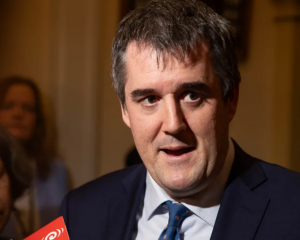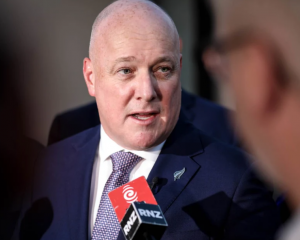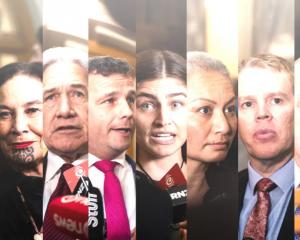New Zealand has dropped out of the top 10 countries for media freedom after a year in which police searched newsrooms over the now-infamous "teapot tapes''.
In its annual press freedom index, advocacy group Reporters Without Borders ranked New Zealand 13th in the world for media freedom last year - down five places from eighth in 2010.
The report noted traditionally good performers in the Asia-Pacific region, including New Zealand, had failed to shine.
"With New Zealand's fall to 13th position, no country in the Asia-Pacific region figured among the top 10 in the index,'' the report said.
The report did not say what was behind the fall, but it comes after a year in which newsrooms were searched by police, the New Zealand Herald was temporarily banned from the parliamentary press gallery, and a proposed new law sought to give police greater powers to enter newsrooms.
Media Freedom Committee chairman Tim Murphy, who is editor-in-chief of the New Zealand Herald's titles, said it was surprising New Zealand had fallen five places, but the drop itself was not unexpected.
"There are frequent, small regressions in New Zealand in media freedom, and the important thing here is that media freedom is not on behalf of the media, it's not for media companies, it's freedom of expression and freedom of information on the public's behalf,'' he said.
"To see a country like ours being viewed by an external outfit like Reporters Without Borders as going backwards is very disappointing.''
Murphy said any detached view of media freedom in New Zealand last year would have looked at things like the police investigation into the teapot tapes.
The teapot tapes saga resurfaced today when a leaked recording of the pre-election conversation between Prime Minister John Key and Epsom MP John Banks was posted online anonymously.
The original recording was made when freelance cameraman Bradley Ambrose left a microphone on a table during the publicity stunt at an Epsom cafe.
Ambrose, who claims the recording was inadvertent, passed it on to the Herald on Sunday, which then approached Mr Key seeking to publish its contents.
Mr Key declined and laid a complaint with police, leading to search warrants being executed at the newsrooms of four media organisations.
Murphy said the decision to call in the police "would not have played well'' with those assessing media freedoms.
He also cited the Government's Search and Surveillance Bill, which he said opened new areas for police to come into newsrooms and require information be handed over.
Murphy said erosions to media freedoms were creeping and incremental, and the public did not generally realise until there was "a reminder like this''.












